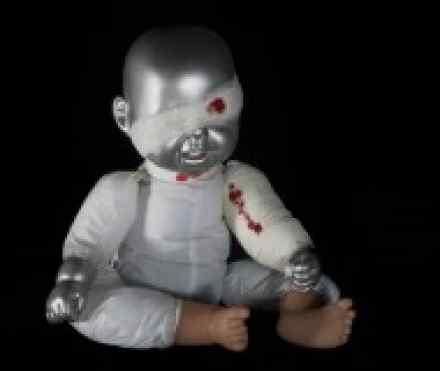
What is it?
Shaken baby syndrome — also known as abusive head trauma, shaken impact syndrome, inflicted head injury or infant whiplash syndrome — is a serious brain injury that occurs when an infant or toddler is forcefully shaken. Shaken baby syndrome destroys a child's brain cells and prevents his or her brain from getting enough oxygen. Shaken baby syndrome is a form of child abuse that can result in permanent brain damage or death.
Shaken baby syndrome is preventable. Help is available for parents who are at risk of harming a child. Parents also can educate other caregivers about the dangers of shaken baby syndrome.
Symptoms
Shaken baby syndrome symptoms and signs include:
- Extreme irritability
- Difficulty staying awake
- Breathing problems
- Poor eating
- Tremors
- Vomiting
- Pale or bluish skin
- Seizures
- Paralysis
- Coma
Other injuries that may not be noticeable include bleeding in the brain and eye, damage to the spinal cord and neck, and fractures of the ribs, skull and bones. Evidence of prior child abuse also is common.
In mild cases of shaken baby syndrome, a child may appear normal after being shaken — but over time he or she may develop health, learning or behavior problems.
Causes
Babies have weak neck muscles and often struggle to support their heavy heads. If a baby is forcefully shaken, his or her fragile brain moves back and forth inside the skull. This causes bruising, swelling and bleeding.
Shaken baby syndrome usually occurs when a parent or caregiver severely shakes a baby or toddler due to frustration or anger — often because the child won't stop crying. No behavior, however, justifies shaking a child.
Shaken baby syndrome isn't usually caused by bouncing a child on your knee, minor falls or even rough play.
Risk factors
For parents and other caregivers, factors that may increase the risk of inflicting shaken baby syndrome include:
- Unrealistic expectations of babies
- Stress
- Domestic violence
- Alcoholism or other forms of substance abuse
- Unstable family situations
- Depression
- A history of mistreatment as a child
Men are more likely to inflict shaken baby syndrome than are women.
Complications
About half of children affected by shaken baby syndrome die. Survivors of shaken baby syndrome may require lifelong medical care for conditions such as:
- Partial or total blindness
- Hearing loss
- Developmental delays or learning problems
- Mental retardation
- Seizure disorders
- Cerebral palsy
Diagnosis
A child who's been forcefully shaken may need to be examined by a number of medical specialists as well as an expert in child abuse. Various tests may be needed to detect injuries, such as:
- Computerized tomography (CT) scan. A CT scan uses X-ray images to provide cross-sectional images of a child's brain. This test can help detect injuries that need urgent intervention.
- Magnetic resonance imaging (MRI). MRI uses a powerful magnetic field and radio waves to create detailed images of a child's brain. Because MRI is difficult to perform on a child who's unstable, it's usually done two to three days after the injury.
- Skeletal survey. A series of skeletal X-rays — possibly including the arms, hands, legs, feet, spine, ribs and skull — may be used to gauge whether fractures are accidental or purposeful and find previous fractures.
- Ophthalmologic exam. An eye exam can reveal bleeding and other eye injuries.
Depending on the extent of the injuries, monitoring may be needed in a pediatric intensive care unit.
References
http://www.mayoclinic.org/diseases-conditions/shaken-baby-syndrome/basics/definition/con-20034461
http://www.medicinenet.com/shaken_baby_syndrome_abusive_head_trauma/article.htm
http://www.cdc.gov/violenceprevention/childmaltreatment/abusive-head-trauma.html
http://www.webmd.com/parenting/baby/tc/shaken-baby-syndrome-topic-overview

